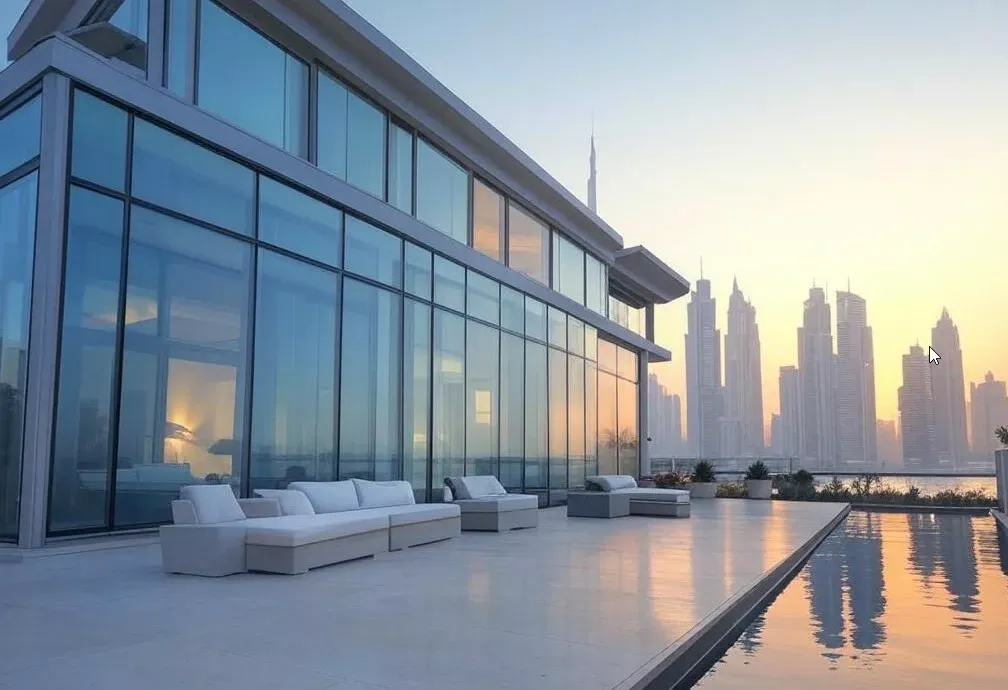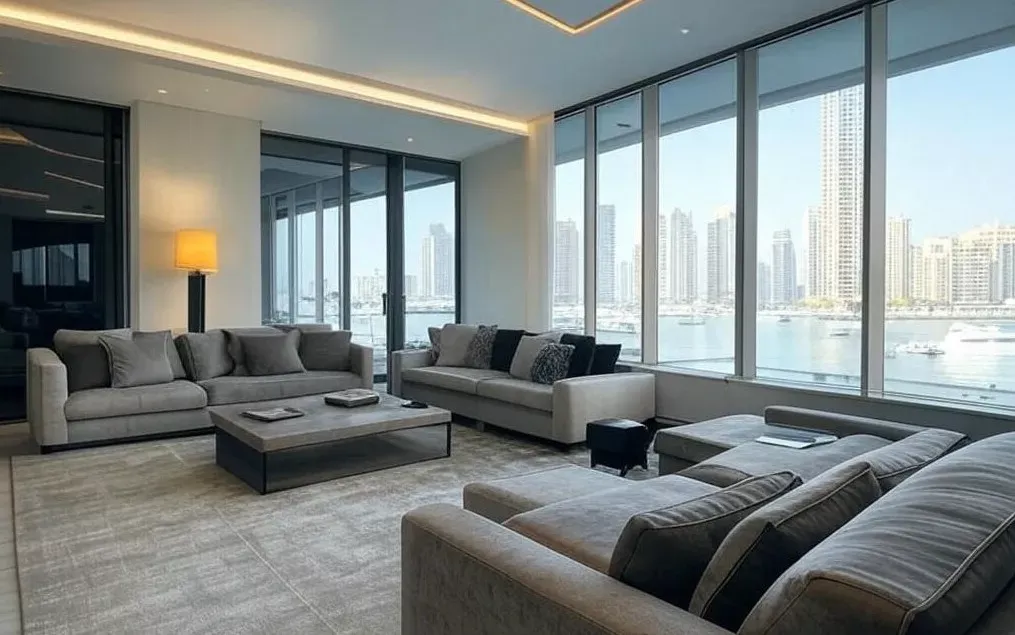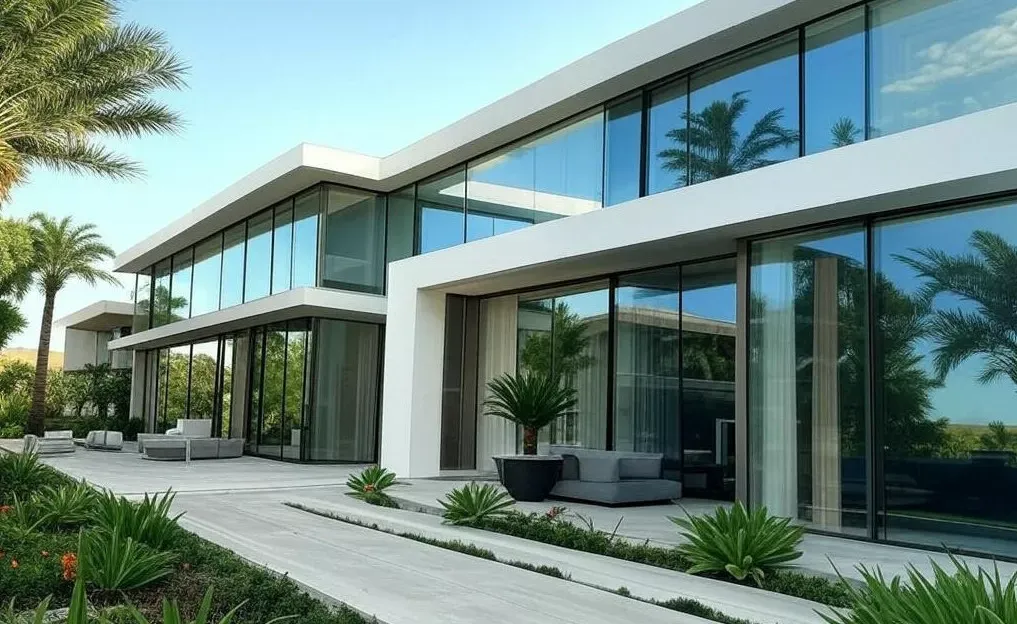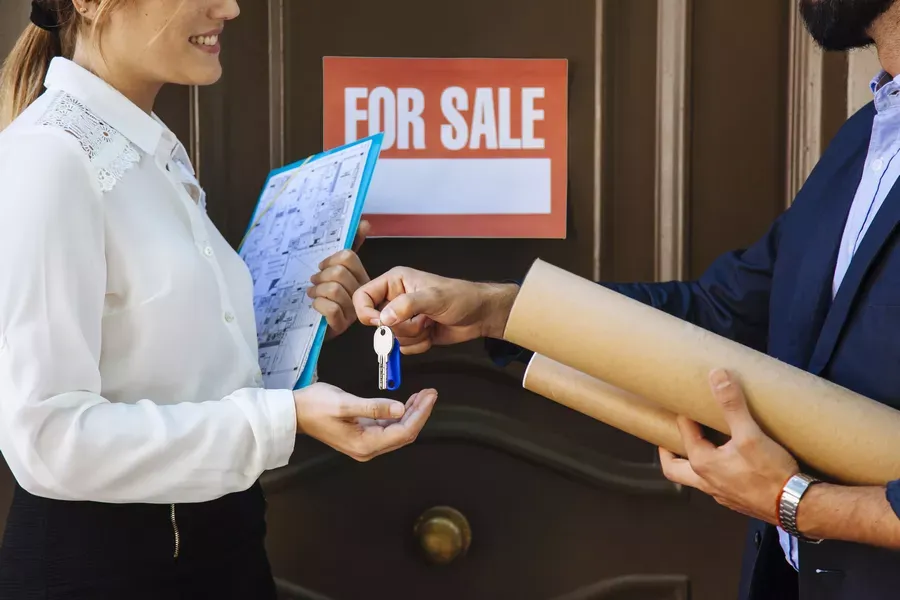Dubai attracts numerous individuals each year who aspire to purchase residential property. A frequent question for prospective buyers, particularly expatriates and foreign investors, is related to the length of property ownership permitted in Dubai. In what follows, we will explore the details of property ownership in Dubai and explain how long you can own a house.
Property Ownership in Dubai
To answer the question of how long you are allowed to own a house in Dubai, we need first to take a look at the legal framework governing property ownership in the UAE.

Unlike some countries where property laws may vary significantly, Dubai has established clear regulations to encourage foreign investment while maintaining a structured system.
Freehold vs. Leasehold Ownership
In Dubai, property ownership is primarily divided into two categories: freehold and leasehold. These terms define the duration and nature of ownership:
Freehold Ownership
With freehold properties, the buyer obtains full and perpetual ownership of the property and the land it occupies. This means that once purchased, the ownership has no time limit, allowing you to sell, lease, or bequeath it according to your preferences.
Freehold ownership is the most common form for residential properties in Dubai, especially for villas, townhouses, and apartments in designated areas. As of 2023, freehold properties accounted for approximately 85% of residential property transactions in Dubai’s designated freehold areas, reflecting their dominance in the market.
Leasehold Ownership
Leasehold ownership in Dubai means you own a property for a specific duration, usually between 10 and 99 years, as outlined in the lease contract.
The land itself remains under the ownership of the landlord or developer, and when the lease expires, the property rights return to them unless the lease is extended.
Leasehold arrangements are less prevalent in Dubai’s residential sector. For instance, in 2023, they comprised only about 10% of total property transactions.
Although not as common in Dubai's residential sector, leasehold arrangements may exist for certain commercial or multi-purpose developments.
Freehold ownership is generally the favored option for those buying homes in Dubai because it provides long-term stability and adaptability. The main point is that with freehold, there's no limit to how long you or your descendants can own the property.

What are the So-Called Freehold Areas?
One of Dubai’s most significant real estate reforms came in 2002, when the government introduced freehold ownership for non-UAE nationals in specific areas.
These designated freehold zones allow expatriates and foreign investors to purchase properties with full ownership rights. Popular freehold areas include:
- Downtown Dubai
- Emirates Hills
- Dubai Marina
- Business Bay
- Palm Jumeirah
- Jumeirah Lakes Towers (JLT)
- Arabian Ranches
In these areas, foreigners can buy villas, apartments, or townhouses under freehold terms, meaning that they own the property indefinitely. However, outside these zones, property ownership for non-residents is restricted to leasehold.

Key Regulations Governing Property in Dubai
Dubai's real estate market operates under a well-defined legal structure overseen by several government bodies, primarily the Dubai Land Department (DLD) and the Real Estate Regulatory Agency (RERA).
These organizations play an important role in ensuring openness, safeguarding the rights of property buyers, and maintaining a strong legal foundation for all real estate dealings.
Several pieces of legislation govern property ownership in Dubai that provide clarity for both local and international investors. These are explained below:
- Law No. 7 of 2006: This foundational law established the Dubai Land Department and formalized the process for registering property transactions. More importantly, it also legally recognized freehold ownership for foreign nationals within specific designated zones.
- Strata Law (Law No. 27 of 2007): This law specifically addresses the ownership of apartments and shared amenities within multi-unit buildings, such as condominiums. It clearly defines the rights and responsibilities of owners in freehold properties, including aspects like service charges and the management of common areas.
- Escrow Accounts: To provide financial security for buyers, developers selling properties that are still under construction (off-plan) are legally required to deposit buyer funds into escrow accounts that are regulated by RERA.
- This measure ensures that buyers' investments are used for the intended construction and significantly reduces the potential for fraudulent activities.
These regulations collectively create a secure and transparent environment for property ownership in Dubai. They assure freehold buyers that they can own their properties indefinitely as long as they comply with the relevant legal and financial requirements.
Practical Considerations for Owning a House in Dubai
While the legal framework allows for indefinite freehold ownership, there are practical considerations that buyers should keep in mind. We will explain these in more detail below.
1. Residency and Visa Benefits
Dubai offers potential visa benefits as an added incentive to property ownership. Investing in a property with a minimum value of AED 750,000 (approximately USD 204,000) can open the door to a renewable two-year residency visa.
A higher investment in property valued at AED 2 million (around USD 544,000) or more may lead to eligibility for a five-year residency visa.
While these visas allow you to reside in Dubai, they do not affect the duration of your property ownership. If you own a freehold property, it remains yours indefinitely, regardless of your visa situation.
2. Passing on Your Property
If you own a freehold property in Dubai, you have the right to pass it on to your heirs, similar to inheritance practices in many other countries.
However, non-Muslims should be aware that UAE inheritance laws may default to Sharia principles, which could influence how your property is distributed.
To make sure that your estate is handled according to your specific wishes, it is recommended to create a will and register it with the Dubai International Financial Centre (DIFC) Wills Service Centre. This allows non-Muslims to specify inheritance based on the laws of their home country.
3. Selling or Transferring Your Property
Freehold property owners in Dubai have the flexibility to sell or transfer their property at any time they choose, subject to prevailing market conditions and standard transaction costs, including the 4% transfer fee charged by the DLD.
It is to be noted that there are no regulations requiring a minimum period of ownership before a sale can occur.
4. Market Trends and Investment Potential
Dubai's real estate market is characterized by its dynamism, with property values subject to fluctuations driven by factors such as supply, demand, and overall economic conditions.
Freehold ownership allows you to benefit from potential appreciation in property value over time. Since there is no time limit on ownership, you can hold the property as long as it aligns with your financial goals.
How to Successfully Purchase Property in Dubai
Now, we would like to provide you with a number of important steps to help you navigate the Dubai property market.
1. Understand the Lay of the Land
Before you begin your property search, take time to understand Dubai's diverse real estate landscape. We suggest that you dedicate enough time to researching the current market conditions to identify the most promising opportunities that align with your goals.
2. Define Your Financial Boundaries
Once you have a general understanding of the market, establish a clear and comprehensive budget. Remember to account for all associated costs beyond just the listed price. Your budget should include:
- The initial down payment
- Property registration fees payable to the Dubai Land Department
- Property insurance premiums
- Utility connection fees
3. Choose Your Ownership Structure: Freehold vs. Leasehold:
In Dubai, as we highlighted above, property ownership is categorized as either freehold or leasehold. Carefully consider your long-term investment objectives to determine which type of ownership best suits your needs.
4. Partner with a Reputable Real Estate Agent
Engaging a knowledgeable and trustworthy real estate agent can significantly simplify the complexities of the buying process. Seek out agencies, such as Entralon, with a proven track record and in-depth understanding of the Dubai market.
5. Navigate the Legal Framework:
After you have identified your ideal property, you should understand the legal procedures. The major steps in the legal process include:
- Submitting a formal purchase offer to the seller
- Signing a Memorandum of Understanding (MoU), which outlines the terms of the sale agreement
- Paying a deposit, typically around 10% of the agreed purchase price
- Completing the registration process with the Dubai Land Department (DLD)
6. The Final Transfer of Ownership
The final stage of the buying process is the official transfer of ownership. Both you and the seller will typically need to be present at the Dubai Land Department to complete this step. Make sure that you have all necessary documentation prepared, including:
- Valid identification (passport, Emirates ID)
- The completed sale agreement
- Proof of payment and financing details
Clearing Up Some Myths About Property Ownership in Dubai
Prospective buyers often encounter certain myths about the duration of property ownership in Dubai. Let's clarify some of the most common misunderstandings:
Misconception One
- Myth: Foreigners can only own property for a limited period.
- Reality: In freehold zones, foreign nationals have indefinite ownership rights, just like UAE citizens.
Misconception Two
- Myth: Your property ownership ends if your visa expires.
- Reality: Property ownership and visa status are distinct. Even if your residency visa is no longer valid, you still retain ownership of your freehold property.
Misconception Three
- Myth: All properties in Dubai are freehold.
- Reality: While freehold is prevalent in specific areas, some properties, especially commercial or older developments, are leasehold with a fixed ownership term.
Wrapping Up: How Many Years Can You Own a House in Dubai?
To definitively answer the question of how long you can own a house in Dubai, the key lies in the type of ownership. For Freehold Properties, the answer is yes.
Whether you are a UAE national, a citizen of a Gulf Cooperation Council (GCC) country, or an international investor, there is no time limit on how long you can hold the title.
Freehold ownership in designated areas such as Dubai Marina, Downtown Dubai, or Palm Jumeirah provides you with complete rights to the property and the land it occupies, allowing you to own it, sell it, or pass it on to your heirs without any restrictions on time.
In contrast, Leasehold Properties come with a fixed ownership period, often up to 99 years, after which the property may revert to the landlord unless the lease agreement is renewed.























Discussion